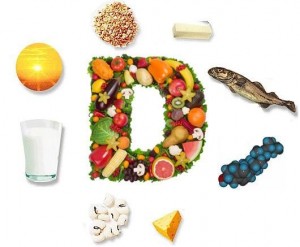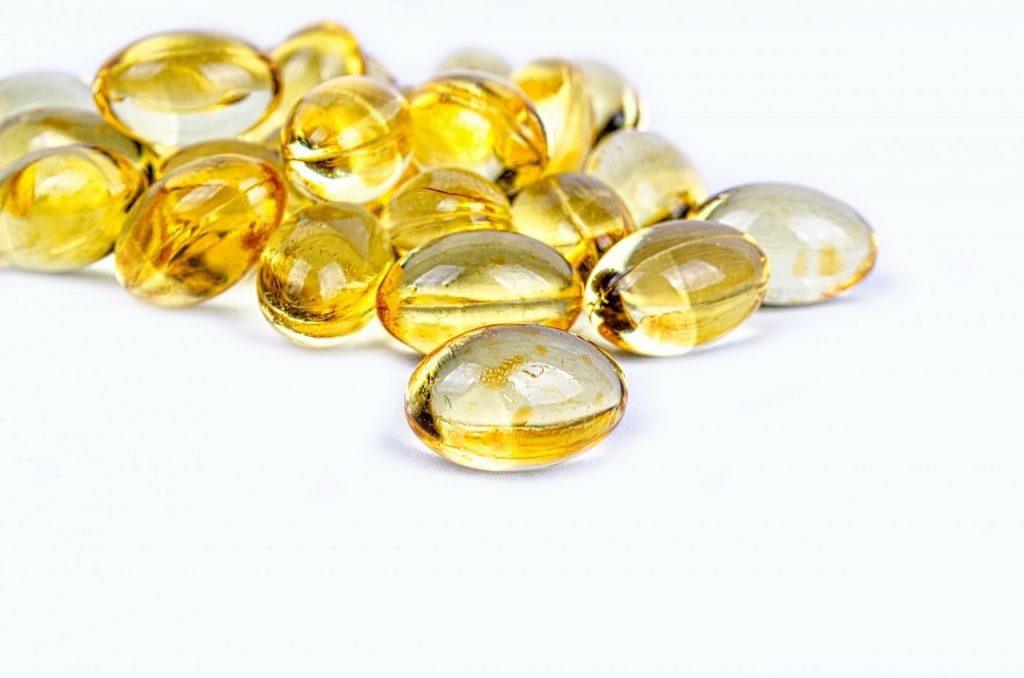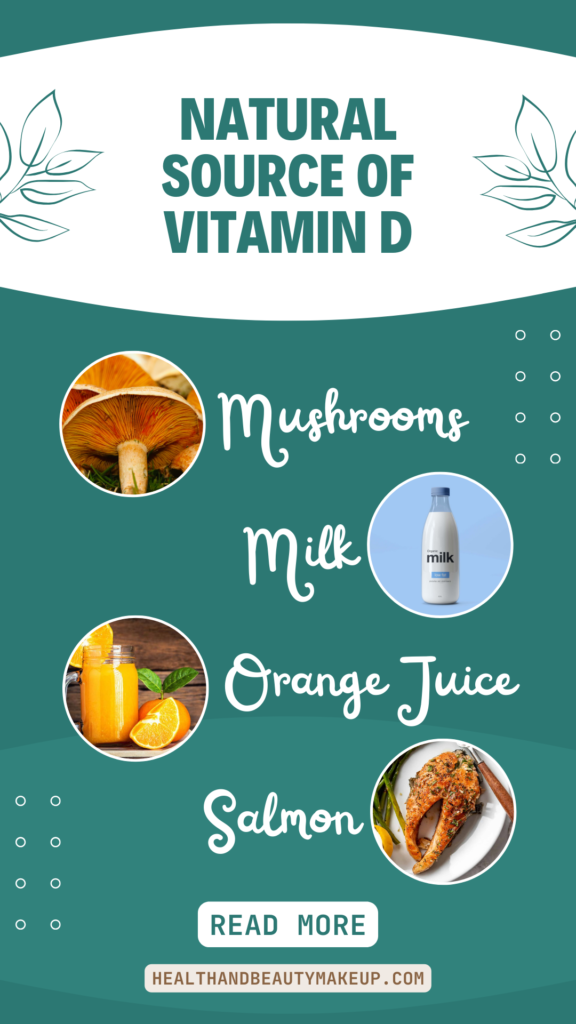What Is Vitamin D Good For
Can we find a tool that strengthens bones, raises immunity and reduces the likelihood of diabetes, high blood pressure, heart attack, cancer, depression, and, above all, is free?
Sounds fantastic, of course, but such tool really exists in the form of for many of us known vitamin D, which is obtained during exposure to the sun.
However, what is interesting is that despite its easy availability, almost half of the inhabitants of the world have a lack of this vitamin.
Vitamin D is present in many parts of the body, where affects to many important life processes. It has long been known that this vitamin is important for the health and strength of bones, and that the lack of this vitamin influence the emergence and development of rickets and osteoporosis.
But recently, there was the link to the lack of vitamin D with other diseases such as diabetes, heart and blood vessel diseases, autoimmune diseases, weakening of mental functions and even some cancers. Therefore, it is important to know what are the benefits that vitamin D provides to the body, and for what it is useful.
There are two main forms of vitamin D:
- D2 – ergocalciferol
- D3 – cholecalciferol
Vitamin D can be synthesized by the body in the presence of sunlight. It is the only vitamin which active form is the hormone. Vitamin D is liposoluble and regulates the absorption and utilization of the minerals calcium and phosphorus.
Vitamin D is not only important in the maintenance of bone density. He has a role in many other neurological and cellular functions that also require calcium, as well as normal growth and development. Also participates in the production of monocytes.
How much vitamin D we need on a daily basis?
The required daily amount of vitamin D is expressed with adequate intake (AI), and not with the RDA (Recommended Daily Amount), due to the inability to accurately determine the production of vitamin D during the body’s exposure to sunlight. Adequate intake determines the amount to be intake with food to maintain normal function of the body. Measured in international units it is 40 IE in microgram.
Adequate intake of vitamin D in the form of cholecalciferol and ergocalciferol for persons under 50 years (including pregnant women and lactating women) is 200 IE. For persons from 51 to 70 years is 400 IE, and for persons who have over 70 years it is 600 IE.
A dose of 700 IE for people older than 65 years significantly reduces the number of fractures when taken together with 500 mg of calcium per day.
USE OF VITAMIN D
Although only a small amount of vitamin D may be sufficient to reduce the risk of rickets or broken bones, then large amounts of vitamin D are more likely to support the whole optimal health.
Here are some diseases that can be helped with higher doses of vitamin D.
Prevention of osteoporosis
One of the main uses of vitamin D is in the prevention of osteoporosis. The disease is mainly due to the reduced amount of calcium in the bones, but their own calcium supplements would not be useful because vitamin D is required for proper use and utilization of calcium. Taking only vitamin D without calcium is also ineffective in this case.
Rickets
Rickets is a syndrome that affects children who have vitamin D deficiency and include deformities of the joints and bones, poor growth and development.
Prevention of colon cancer
Vitamin D plays a role in the prevention of colon cancer. Possible are also protective effects against breast cancer and prostate cancer, but they have not yet been determined. There are ongoing studies of its effectiveness in the treatment of leukemia and lymphoma. It is shown that enhances the effect of tamoxifen, chemotherapy drug used in the treatment of ovarian cancer and breast cancer.
Weakened function of hearing bones
Many older people have a lack of vitamin D. It might affect hearing because of the weakened function of hearing bones that transmit sound. If this is the cause of hearing loss, it is possible, treatment with supplements of vitamin D to improve the situation.
Metabolic disorders
Some of the diseases of metabolism respond to treatment with vitamin D. These include Fanconi syndrome and familial hypophosphatemia. In both we have lower levels of phosphate. In these conditions, vitamin D is administered in conjunction with phosphates to improve absorption.
Skin diseases
Vitamin D is used for outdoor use, and can be useful in the treatment of psoriasis.
Healthy skin
If you notice that your skin is pale and lackluster, it is possible that you have a lack of vitamin D. By increasing the dose of vitamin D can be successfully reduced acne, increase the elasticity of the skin, to stimulate the production of collagen, and to mitigate dark spots on the skin. According to research at Stanford University,intake of vitamin D may reduce the risk of developing skin cancer.
Breast cancer
High levels of vitamin D in the body are associated with a low risk of developing breast cancer. One study found that the combination of vitamin D and calcium significantly reduces the likelihood of the disease, and even to 75%. In half of the surveyed cases, vitamin D prevented the growth of already existing breast tumor.
Diabetes
Children who in the first year of life receive vitamin D3 in the next 30 years have 80% less chance to be diagnosed with diabetes type 1. Studies have shown that vitamin D reduces the risk of type 2 diabetes, especially if it is inserted in the body with calcium.
Cardiovascular disease
Several Irish experts who studied vitamin D have come to the conclusion that this vitamin positive effect on the health of the heart and blood vessels, thus regulating hormones that affect blood pressure and control the amount of calcium in the blood.
Similar research at Harvard University found that women who have low levels of vitamin D in the blood, have 67% greater chance of occurrence of high blood pressure.
Weakness in the muscles
Weakness in the muscles usually occurs due to a lack of this vitamin, because without it, the muscles cannot function properly. Vitamin D is responsible for the absorption of calcium and phosphorus in the muscles, which in turn serve to enhance muscle contraction. Experts say that the diet enriched with vitamin D is developing more muscle mass.
Chronic kidney disease
Adding vitamin D is needed for the patients suffering from an advanced form of kidney disease because the body in such cases, cannot produce the active form of vitamin D.
Flu and colds
Lack of vitamin D brings greater susceptibility to respiratory diseases of the airways. Studies have shown that intake of vitamin D significantly reduces the chances of developing these diseases in the children.
Asthma
Vitamin D deficiency is associated with increased sensitivity of the airways, weaker lung function and with increased asthma attacks. Vitamin D may reduce the intensity of these attacks. Namely, it has been proved that the attacks of asthma are much lower in people who entered 1200 IE of vitamin D on a daily basis.
Psoriasis
Studies show that vitamin D is helpful against psoriasis. Vitamin D acts in a way that slows down the abnormal growth of skin cells and reduces local inflammation. The use of vitamin D increases the effectiveness of other treatments against psoriasis.
Dementia
Scientists have found that vitamin D is associated with the mental abilities of man. Studies have shown that people who have the greatest amounts of vitamin D in the body also have the best mental capabilities, while the worst results showed people that have a lack of this vitamin.
Depression
Depression is also associated with lack of vitamin D. People who suffer from depression are usually connected to the home and rarely go out, do not exercise and do not eat well, which can lead to a lack of this vitamin. Typically, this situation improves when you increase your intake of vitamin D, since one of its functions is increasing the level of serotonin in the blood, and it is similar like the way that antidepressants act.
Allergies
Vitamin D deficiency is associated with an increase risk of allergy, especially with the allergy from pollen.
Skin cancer
Some research suggests that for certain individuals, vitamin D, combined with exposure to the sun or using supplements of calcium, can get protection from skin cancer.
Vaginal infections
Bacterial vaginosis attacks almost every third woman. The maintenance of normal levels of vitamin D may decrease the risk of this type of infection.
How to get sufficient amounts of vitamin D?
Sensible exposure to sunlight (of course not between 12 and 16 pm) is a simple and free way to get those levels of vitamin D needed by your body. Sunbathing is really a powerful therapy and its effect exceeds a number of therapies, but be careful don’t stay too long in the sun!
Foods rich in vitamin D
Milk
You already drink milk because of the calcium. Drinking a glass of milk daily contains enough vitamin D and is one of the mandatory habits when it comes to diet during pregnancy. You can add in cream sauces or soups. The best example is the home cream soup of broccoli. Ice cream is not a good option.
Salmon
Salmon and other fatty fish are considered to be the richest food sources of Earth’s natural vitamin D. Farmed salmon fishery tends to contain lower levels of vitamin D, and sea salmon contain the highest levels of vitamin D. Salmon is also a rich source of omega-3 fatty acids – fats that are needed for optimal brain development of the baby. Another positive thing in salmon is easy preparation.
Orange juice
Not only because of vitamin C, but the benefits of vitamin D make this drink a mandatory part of refreshing beverages. According to a new study, the body uses vitamin D from orange juice as effective as it uses vitamin D from the nutrition. So, why not start the day with a bowl of cereal with milk and a glass of orange juice?
Cereals
Oats and other cereal grains are also good sources of vitamin D. Add a glass of milk and provide your body with a greater amount of this “solar” vitamin.
Mushrooms

Another vegetarian source of vitamin D are mushrooms. Like people, and mushrooms are able to synthesize vitamin D through exposure to sunlight.
Sprinkle mushrooms in your salad, add them to soups or stews, and do not forget them on your pizza.
Canned Tuna
Tuna is easy, economical choice for adding more vitamin D in your diet. Tuna also comes packed with other nutrients that are helpful like calcium, iron, folic acid and magnesium.And eating tuna does not mean eating only tuna sandwich. Be creative and make your salad, pasta or pizza with tuna.
Yogurt
Many of you very well know the health benefits of yogurt. Besides yogurt, a major benefit is eating sour milk. If you have them on your food menu, it will provide you with a healthy dose of calcium and live active cultures “good bacteria” that can be useful for digestion.
Fish liver oil of cod
In addition to an excellent dose of omega-3 fatty acid, this oil is a natural source of vitamin D. Today fish liver oil of cod can be found in combination with a pleasant fruit flavor of lemon or strawberry in the form of a capsule.
Shrimp
Shrimps are also a natural source of vitamin D in your diet. Have low levels of fat and calories compared to other fish and seafood, and are rich in nutrients such as selenium and vitamin B12, which is important for the development of the nervous system. For your safety, before eating make sure that the shrimps are thoroughly cooked.
Swiss cheese
As people and cows so synthesize vitamin D from sunlight, and some quantities naturally end up in the milk. Although it is full of holes Swiss cheese tends to have the most of this natural vitamin D. Rich in calcium, this cheese is a great addition to a sandwich or salad.
Eggs
Eggs are a good choice of protein, containing valuable amounts of iron and B vitamins and choline – an important nutrient for brain development. Responsible for vitamin D in egg is the yolk. Remember that whites do not contain vitamin D and you must use all the egg or just yolk to provide this”sunny” vitamin for your body.
Risk factors for vitamin D deficiency:
The likely cause of vitamin D deficiency is inadequate exposure to sunlight. This occurs in people who do not go out too much, in areas of the world where there is big pollution, which blocks UV rays, or where weather conditions do not allow for people to be spending time outdoors.
Glass filters, and sunscreen creams block UV rays, which are necessary for the production of vitamin D. People with darker skin absorb small amounts of UV rays.
Enough sun exposure during the summer months as well as adequate food intake should be sufficient to supply the body with vitamin D even in the winter months.
Vegans, or any who not intake enough dairy products in his nutrition, and at the same time are not spending enough time under the sun, have an increased risk of deficiency of vitamin D. Also under higher risk are and the elderly people due to their reduced ability to synthesize vitamin D.
Babies are usually born with a nine-month supply of vitamin D. Those who are born prematurely are at increased risk for vitamin D deficiency and calcium. Also, infants over nine months, who not receiving milk enriched with vitamin D and not have adequate sun exposure, have an increased risk of deficiency of vitamin D.
People with diseases of the liver and kidneys need a vitamin D supplement in the active form because of their inability to synthesize it.
Supplements of vitamin D also need people who take certain medications.This means that patients receiving therapy for arthritis, asthma, allergies, autoimmune conditions, high cholesterol and epilepsy should consult a doctor to start taking supplements of vitamin D.
As is the case with other vitamins, excessive alcohol consumption has a negative effect on the absorption and storage of vitamin D.
People in poor, underdeveloped countries, have more a common deficiency of vitamin D and other vitamins, because of insufficient food intake.
Another group of people who need higher doses of vitamin D than average are people who have had surgery, major injuries or burns. Increased stress and chronic debilitating diseases also require higher doses of vitamin D.
And finally – Calcium + Vitamin D reduces the risk of cancer by 77%
Enough intake of vitamin D and calcium affect significantly on reducing the risk of cancer. Four years of research shows that women who accept this combination overall risk of cancer is lower by 77 percent.
Vitamin D increases the immune response of the body’s, which is the first line of protection against malignant diseases.










